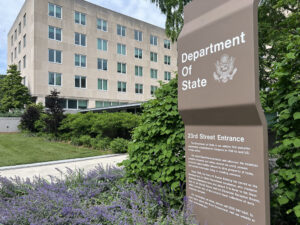Building Unity, Sovereignty, and Future Prosperity
Nationalism plays an essential role in shaping the identity of nations, fueling pride, unity, and loyalty. For Nigeria, a country renowned for its cultural diversity and complex history, nationalism carries deep significance. This article examines what it means to be a Nigerian nationalist today, the responsibilities and expectations of those who champion this cause, and the contemporary relevance of this ideology in the context of Nigeria’s ongoing struggles and opportunities.
Understanding Nationalism and Nigerian Identity
Nationalists are individuals who advocate for the collective welfare, independence, and unity of their country. They work to safeguard their nation’s culture, resources, and sovereignty, often prioritizing national interests over foreign or personal concerns. Historically, nationalist movements have been pivotal in securing national autonomy and cultural preservation, and in Nigeria’s case, this sentiment played a crucial role during the fight for independence.
Nigeria, with its rich population of over 200 million people, is an intricate tapestry of diverse ethnicities, languages, and traditions. While Nigerians are incredibly proud of their resilience and contributions to various global sectors, they also grapple with political instability, economic inequality, and ethnic divisions. Nationalism, therefore, is viewed by many as a means to overcome these challenges and drive national progress.
The Essence of Being a Nigerian Nationalist
To be a Nigerian nationalist is to commit oneself to the well-being, unity, and security of Nigeria. It is a pledge to defend the country’s interests both within its borders and on the global stage. Nigerian nationalists protect the country’s cultural heritage and resources, ensuring the nation’s sovereignty is upheld and that its future is safeguarded.
The roots of Nigerian nationalism date back to the country’s struggle for independence. Leaders like Nnamdi Azikiwe, Ahmadu Bello, and Obafemi Awolowo embodied these nationalist ideals, advocating for the collective well-being of Nigeria rather than solely focusing on regional or ethnic concerns.
Advantages of Nigerian Nationalism
- Fostering National Unity: Nationalism can serve as a unifying force in a country as diverse as Nigeria. By focusing on a shared national identity, citizens can bridge ethnic and regional divides, creating a stronger sense of collective belonging.
- Defending Sovereignty: Nationalists place a high value on the nation’s independence and the right to govern without external interference. This mindset fosters the belief in Nigeria’s right to control its resources and chart its own political and economic course.
- Promoting a Strong National Identity: Nationalism helps to safeguard Nigeria’s cultural heritage and ensure that its identity remains intact in a rapidly globalizing world, preserving what makes the nation distinct.
- Stimulating Economic Growth: Emphasizing local industries and reducing dependence on foreign goods can lead to economic growth, job creation, and greater self-sufficiency, which nationalists advocate for.
- Building Patriotism: Nationalists champion the country’s achievements and encourage a sense of pride in Nigeria. This sense of patriotism drives citizens to invest in the nation’s future and contribute positively to its development.
Challenges Associated with Nigerian Nationalism
Despite its advantages, nationalism in Nigeria is not without its drawbacks:
- Deepening Ethnic Tensions: Nigeria’s vast ethnic diversity means that nationalism can sometimes inadvertently fuel tensions between groups, especially when political power is seen to favor one ethnicity over another.
- Potential Isolationism: A nationalistic approach that prioritizes Nigeria’s interests exclusively can sometimes result in policies that limit international cooperation and trade, potentially hindering global growth opportunities.
- Conflict with Globalization: Nationalism and globalization often conflict, especially when nationalists resist international agreements, foreign investments, or cultural exchange, all of which can hinder Nigeria’s participation in the global economy.
- Risk of Intolerance: Extreme forms of nationalism can lead to the suppression of political dissent, creating an environment where opposing views are stifled in the name of national pride.
- Exploitation by Corrupt Leaders: Politicians with corrupt intentions may manipulate nationalism, using patriotic rhetoric to justify their actions and maintain power, often at the expense of genuine national progress.
The Current Landscape of Nigerian Nationalism
The enthusiasm for nationalism that characterized Nigeria’s fight for independence seems to have lessened over time, with contemporary politics often driven by regional or ethnic interests. Issues such as corruption, inequality, and regional conflict have fractured the sense of collective national identity that once united Nigerians in their struggle for independence.
However, Nigeria’s youth are showing signs of reviving a new form of nationalism. Movements like the End SARS protests demonstrate that the younger generation is pushing for greater accountability, social justice, and democratic reform essentially embodying a modern form of nationalism that seeks to improve Nigeria’s governance and future.
Is Nigerian Nationalism Still Relevant in Today’s Globalized World?
This brings us to a fundamental question: Can Nigerian nationalism still serve as a driving force for progress, or must Nigeria pivot toward more international cooperation to solve its problems? While some argue that nationalism is key to preserving Nigeria’s sovereignty and tackling internal issues like corruption, others believe that embracing global partnerships and economic integration will enable Nigeria to thrive on the world stage.
Ultimately, the future of Nigerian nationalism depends on how the nation’s people especially the youth embrace the vision for their country. Whether nationalism will serve as a cornerstone for Nigeria’s future or whether a broader global mindset will shape its trajectory remains an open question.
Conclusion
To be a Nigerian nationalist is to dedicate oneself to the country’s unity, sovereignty, and future prosperity. While the nationalist movements of the past focused primarily on securing independence, today’s Nigerian nationalists face different challenges, such as political corruption, economic instability, and regional conflicts. The role of nationalism in Nigeria’s future remains an ongoing debate, but its potential to guide the nation through its current struggles cannot be ignored. Whether Nigeria’s future lies in a renewed sense of nationalism or in deeper global integration, it will depend on how the next generation rises to address the country’s most pressing issues.






